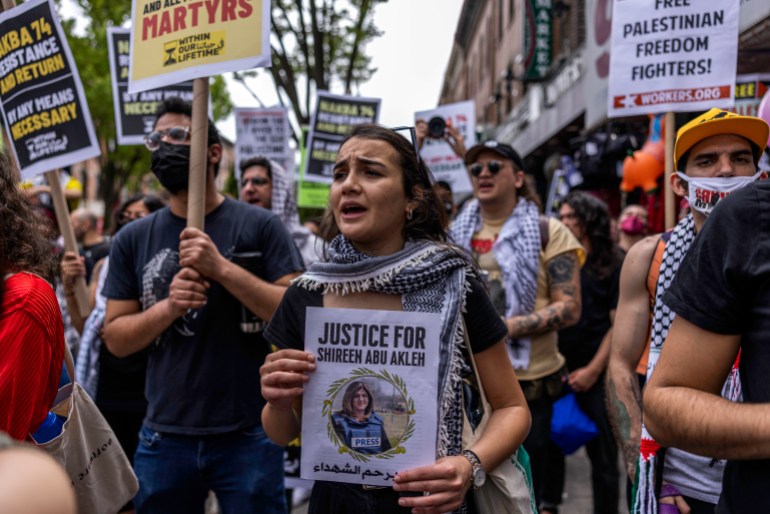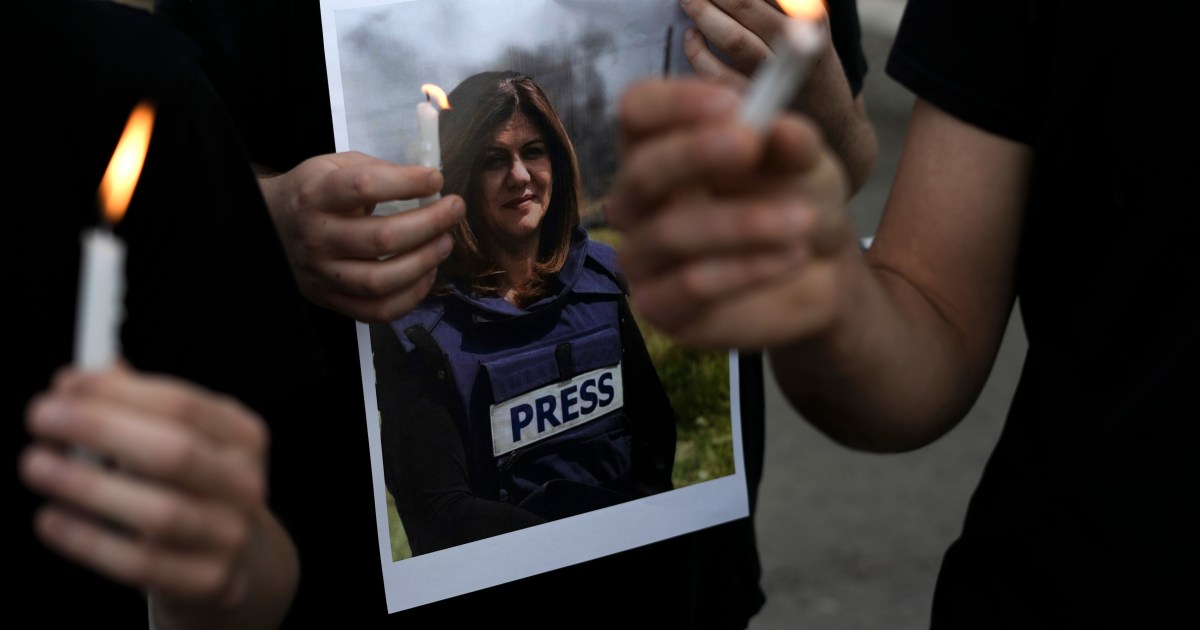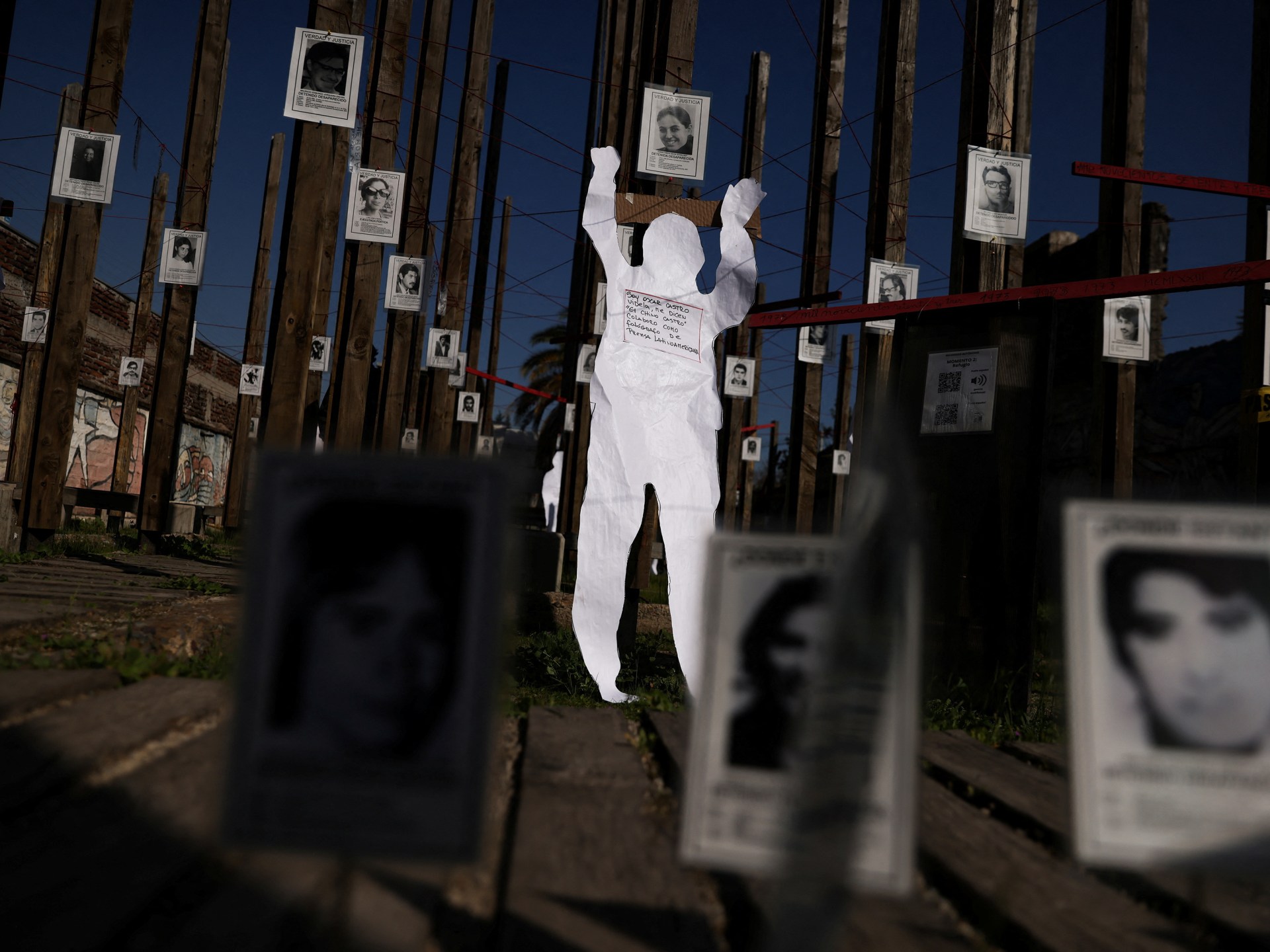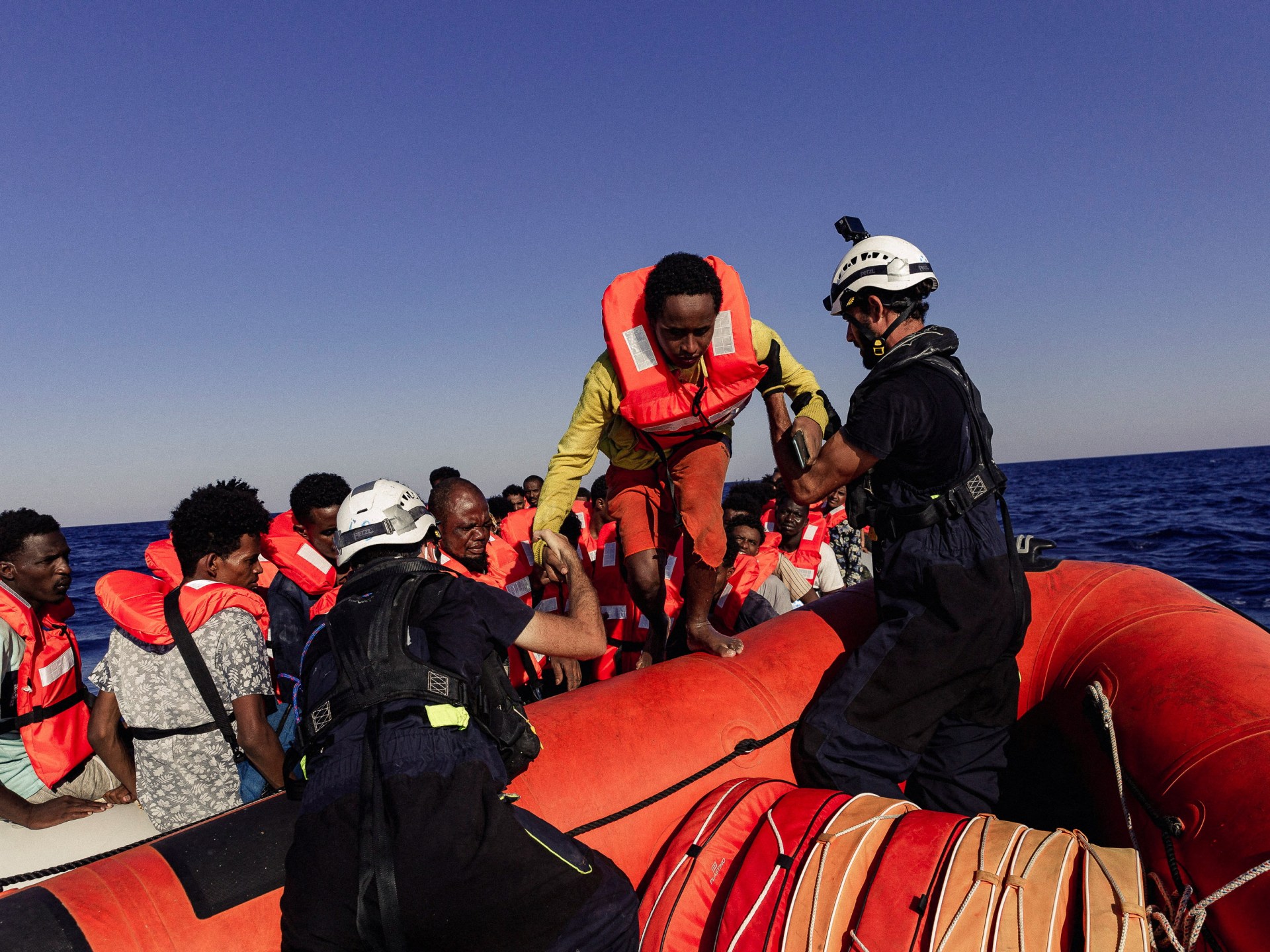Shireen Abu Akleh, one month on: ‘The days have not passed’ | Israel-Palestine conflict News
The image of Shireen Abu Akleh’s lifeless body lying face down on the ground has not left cameraman Majdi Bannoura’s mind.
Bannoura was only a few metres away when Abu Akleh was killed by Israeli forces in Jenin a month ago, on May 11. As her cameraman, and as difficult as it was, he knew that he had to film what he was witnessing.
A month later, Bannoura, who works for Al Jazeera and had a 24-year professional and personal relationship with Abu Akleh, is still in a state of shock.
“We still cannot believe that she’s gone, that we haven’t seen her for a month. We walk into the office hoping to hear her voice,” he said.
The killing of the 51-year-old veteran Palestinian correspondent for Al Jazeera Arabic television has sent shockwaves throughout the world.
Abu Akleh, who also held American citizenship, was shot in the head while covering an Israeli army raid on the Jenin refugee camp, in the northern occupied West Bank, despite wearing a clearly marked press vest and helmet.
Al Jazeera described Abu Akleh’s death as “blatant murder” and said she was “assassinated in cold blood”. The network has assigned a legal team to refer her killing to the International Criminal Court (ICC) in The Hague.
‘Much more than a colleague’
Abu Akleh joined Al Jazeera Arabic at the same time as Bannoura, in August 1997, a year after the network was launched. Back then, Bannoura filmed her first-ever appearance on camera with the channel in Jerusalem.
He also filmed her last, when she was transformed from a reporter into the story itself.
Upon hearing the first bullet, Bannoura began recording. He saw that his colleague, Ali al-Samoudi (who has now recovered), had been shot.
“Ali was injured and I started filming him, I didn’t see Shireen and I wasn’t aware of the size of the tragedy we were in,” he recalled.
“When I turned the camera towards Shireen, I saw her lying on the ground. I wanted to cross the street, but there was live ammunition being fired at us. I realised that the situation was very dangerous – that if I went out, I was going to get shot,” said Bannoura.
“I wasn’t processing what was happening, I made a decision within seconds to keep filming.”
Bannoura kept his eyes on Shireen’s body as he filmed, hoping he would see any sign of life, but to no avail. By the time she was dragged away and taken to a hospital, she was already dead.
Losing her, said Bannoura, has had a difficult and lasting effect on his life.
“Shireen was much more than a colleague, she was a friend to everyone, we had a lifelong relationship beyond just work,” he said between tears.
“She would come over, she knew my children. We spent more time together than we would spend in our own homes. It’s not going to get easier, whether a month or two months, or a year or two years, pass.”
‘An honour’
While Abu Akleh’s killing will continue to make headlines as calls for justice and accountability persist, those who were next to her at the scene are still reliving the trauma and horror of the event.
Local journalist Mujahed al-Saadi was standing next to Abu Akleh when she was shot. He says that he feels time has stopped.

“The days have not passed. I wake up at night to the image of Shireen’s last moments, it stays in my mind,” al-Saadi told Al Jazeera.
Despite being in the direct line of fire himself, al-Saadi wishes he could have done more for Abu Akleh.
“I sometimes feel guilty that I, a son of the area, could not protect Shireen. I did not expect her to be martyred – I thought that I would be the one to die as I was in front of her, closer to the soldiers,” al-Saadi said.
“I went crazy because I felt that the bullets were intended for me,” he added.
Abu Akleh often conducted her television live broadcasts from the rooftop of al-Saadi’s home, and he accompanied her in the field on many occasions, particularly in the camp.
The father of two said working with her – after growing up watching her on TV – was an “honour”.
“Many people dreamt of merely getting the chance to speak to her, let alone work with her,” said al-Saadi, noting her coverage of Israel’s 2002 large-scale invasion of the Jenin refugee camp where he used to live.
“What shocked me the most when I started working with her was her modesty, despite how well known she was. She was patriotic. She was loved by the people.”
Abu Akleh’s funeral procession extended over three days, from Jenin to Jerusalem – one of the longest processions in Palestinian history – and included Nablus and Ramallah. That, said al-Saadi, was indicative of the respect for her among regular Palestinians who flooded into the streets to bid her farewell.
For al-Saadi and Bannoura, the chances of justice for Abu Akleh feel slim owing to the reality of rampant Israeli impunity.
“We have never seen any justice – from any international side or court. Even if we are journalists, we are Palestinians at the end of the day,” said Bannoura, adding that any Palestinian is liable to be targeted.
“We hope that Shireen’s case will be the moment that will change things moving forward.”




